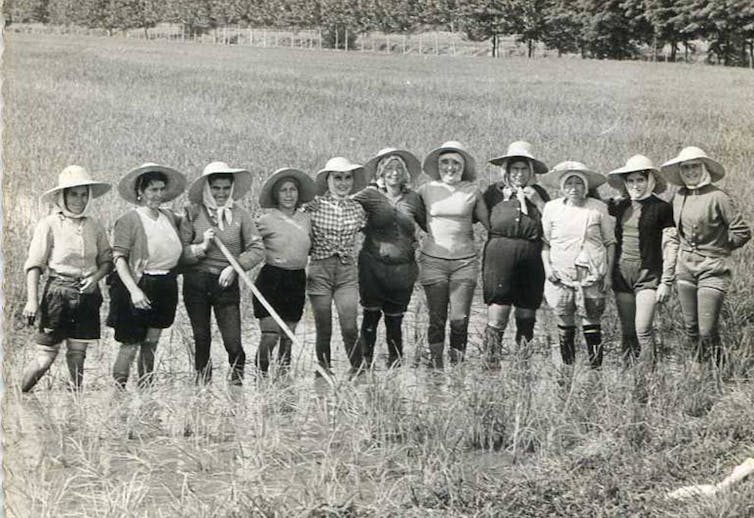Flora Derounian, University of Bristol 
In an era before the dawn of pesticides and mechanisation, an all-female workforce was employed to “disinfect” and harvest Italy’s rice crops. These Italian rice weeders may be a thing of the past, but they have a remarkable political legacy.
Italy was, and remains, Europe’s largest rice producer. The rice weeders, known in Italian as “mondine”, could be found knee-deep in flooded fields from May until July, across Italy’s “rice belt” which spans the northern regions of Piedmont, Emilia Romagna, Lombardy and the Veneto. In my ongoing research, I study oral histories of rice weeders who worked between 1940 and 1965, collected from several interview projects and documentaries. Continue reading


